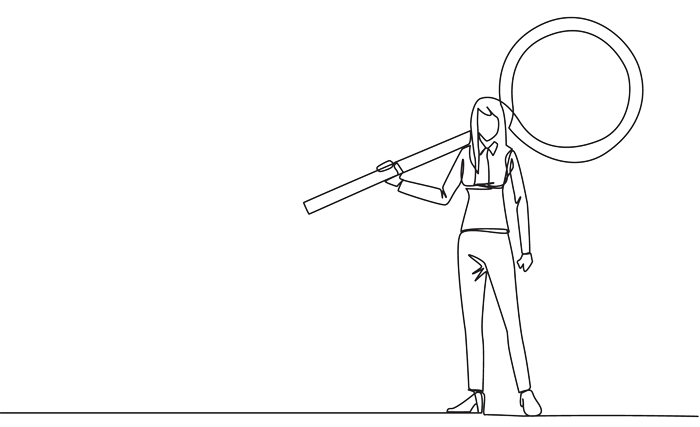Supervison Overview – What to expect in these two semesters?
A semester of supervision comprises five group meetings, each lasting four working hours. Typically, these meetings occur on the Sunday following the theory weekend, spanning from 9 a.m. to 2 p.m.
During these sessions, participants present their supervision examples for discussion.
Course of study
Click on the timeline for more information.
How do I find a supervision topic?
How can I find a supervision topic? For those working in therapy or counseling, it’s relatively straightforward as they encounter numerous themes in their daily professional lives. However, we also welcome any questions or issues arising from everyday life, whether in business, work, school, community, clubs, or elsewhere.
You can uncover topics by reading newspapers and encountering local human dramas, conflict situations, or exemplary actions. For instance, a Greek teacher once delved into myths and discovered timeless human issues.
You can also explore the life stories of individuals portrayed in film or literature.
Additionally, you can work on your own logotherapy project within a meditation circle or community group.
You have the option to present a successful or unsuccessful case study, a planned future intervention, or a logotherapeutic commentary on a topic.
The essence of all these topics should center around applied logotherapy, integrating theoretical knowledge with real-life situations or fundamental human questions. With a solid theoretical background, you should demonstrate your ability to connect your knowledge with practical inquiries.

How does it work in practice?
At least one week before the supervision session, you’ll submit your topic. You’ll introduce the theme you’ve been working on and illustrate how you’ve connected it with elements of logotherapy.
Please include two short or longer sections for this purpose, and feel free in their design. It’s crucial that you provide enough foundational information so that our meeting can immediately dive into a meaningful discussion based on your input.
Two main points should be prepared:
- A diagnostic examination of the topic, perhaps including the history of a mental illness or an analysis of the chosen issue. It’s essential to clarify: What precisely is the problem requiring a solution?
- The next step is: How can the problem be improved or solved using elements/methods/focus/thought from logotherapy? What assistance can be offered, and what solutions are suggested?
These two main points should be present in all materials submitted for group supervision, as they demonstrate precisely how Logo theory intersects with real-life situations.
As you open your „logotherapeutically trained eyes,“ you’ll soon realize that the world is brimming with topics where we can contribute from a logotherapy perspective. You’ll also encounter a plethora of human destinies and life stories to which logotherapy offers helpful, healing insights.

This is what our participants say
View all testimonials
Roland Preußl
Philosopher and theologian, pastoral speaker
Viktor E. Frankl's original logotherapy is now carried out without any time constraints and at the highest level according to the curriculum of Prof. h. c. Dr. phil. habil. Elisabeth Lukas submitted. Miss Dr. Schönfeld and Alexander Vesely, Viktor E. Frankl's grandson, offer the unique opportunity to access the original sources of logotherapy through their video course. Your professional competence is reflected not only in the excellent knowledge of logotherapy in theory, but also in the bridges to therapeutic practice.”
Bettina von Saurma
Alternative practitioner for psychotherapy
The way we look at the world and people shapes our thoughts and actions. I think logotherapy is fantastic because it not only offers tools for treating psychological disorders, which it does, but also looks at people, both in their individual life situation and in their humanity as a whole.
Frankl's Logotherapy frees people from the mistaken assumption that they are merely victims of their genes, living conditions and influences and helps them to stand up and become aware of their freedom as a spiritual person. It encourages and enables people to live a life of freedom and responsibility, guided and guided by the meaning of the moment, so that they become more and more who they decide to be through their attitude and actions. Frankl, thinks big of people.
However, he emphasizes the seriousness that lies in our freedom, but also our responsibility. It doesn't matter how we live, what we choose.
Dr. Schönfeld teaches original logotherapy according to Viktor Frankl in Bamberg with great competence and dedication and I am glad to have come across it. It's an investment to go to Bamberg once a month, but it's worth it. There I get the tools that I was looking for on my professional path. Being able to study and learn logotherapy enriches both my private life and my work.
The advantage of face-to-face teaching is that there is space for exciting discussions during class and for interesting conversations with the other students while eating and during break times. However, I am very pleased that logotherapy will also be offered as an online course in the future and will therefore also reach people who do not have the opportunity to travel to Bamberg.
Constanze Ochs
Psychological psychotherapist
The online academy for logotherapy offers the great opportunity to watch the various online videos of the further training - regardless of time and location, as well as repeatedly - which is an enormous support in internalizing the logotherapy content. Frankl impresses with his intellectual depth, his dignified view of humanity, as well as his suggestions for the “answer” to the task nature of life: “How can people freely - and at the same time take a responsible position - take a position on fateful circumstances?” “What are possibilities that are worth realizing of the facultative ego?”; “How can a healthy arc be drawn between is and should with a view to a fulfilled life?”; “How can a person still say yes to life?” At a time when existential questions of all kinds permeate society, the “answers” of logotherapy prove their timeless validity. As a participant in the further training, I particularly appreciate the structured nature of Dr. Schönfeld, her clear presentation style, her loyalty to original logotherapy and the well-thought-out literature recommendations on the topic discussed. Thank you very much!
